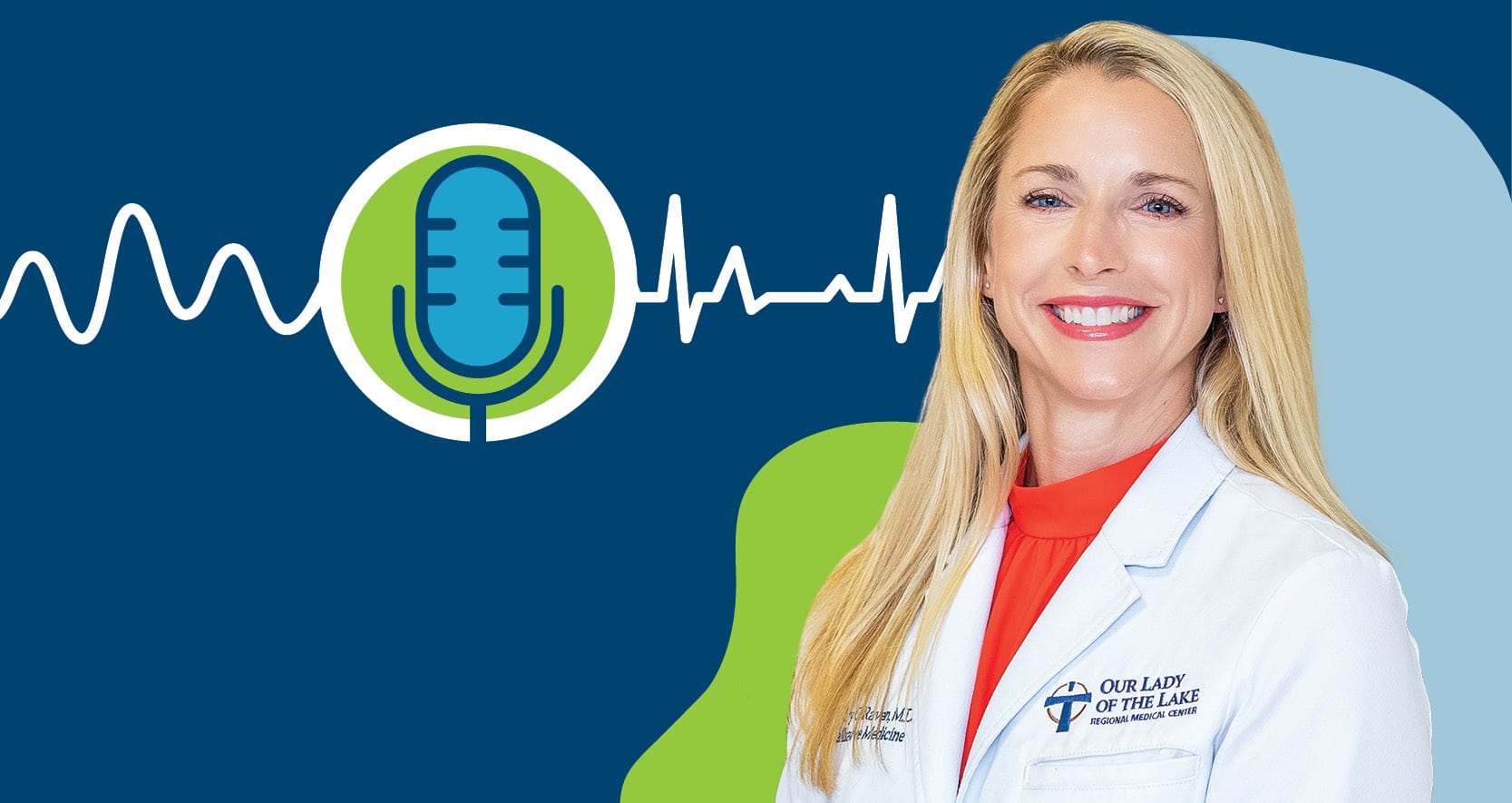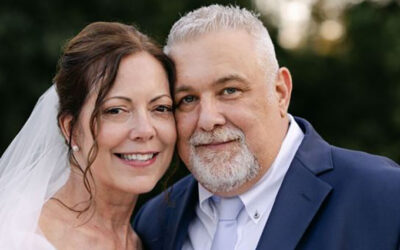Although we may want to pretend death is never going to happen, preparing for end-of-life care is an important life step.
Mary Raven, MD, medical director for the palliative care program at Our Lady of the Lake Regional Medical Center, offers her insights and expertise to demystify the topic in this episode of our podcast. Dr. Raven is board certified in both internal medicine and hospice and palliative care.
Understanding Palliative Care and Hospice Care
Palliative means to alleviate suffering and is a subspecialty of medical care for those living with serious illness. Palliative care is simply care devoted to ease pain and suffering, and it doesn’t depend on a prognosis. It does not mean giving up.
With palliative care, especially when provided in the hospital, patients are very sick and often unable to comprehend what’s going on, relying on their families to make decisions. “In my world, the family unit is really the unit of care, not just the person who has the illness,” Dr. Raven says. Taking care of patients is an effort to improve quality of life for the family, too.
“Palliative medicine is a team sport,” Dr. Raven says. It’s not just about a physician but also the social worker, chaplain, nurse and others on the interdisciplinary team who meet each morning to create plans of care.
Actively Listening to Patients and Their Families
“Listening is the biggest tool we have in palliative care that helps us get patients through these challenges they’re in,” Dr. Raven says. “We’re always getting better at it.”
Families are often very involved in making decisions, and providers spend lots of time educating them about their loved one’s illness. That allows the family to make better decisions for care.
“My passion for palliative care comes from the need I saw early on, and the reward you get when families feel a little bit more at peace,” she says.
Even before COVID-19, video visits were a valuable tool for providing outpatient palliative care.
“It’s often not easy to get to and from an office when you’re feeling so sick,” Dr. Raven says. “We’ve been doing video visits for years and find them to be incredibly helpful. I’m usually listening to concerns, talking about pain and prescribing medicines, all things that can easily be done through video.”
Advance Care Planning
Acknowledging our mortality is always hard. We can pretend death isn’t there or we can have some sort of plan for what we want for ourselves.
Each year National Healthcare Decisions Day is April 16, a date near the U.S. tax due date, in recognition of two truths: we have to pay taxes and we’re all going to die someday.
Assessing your own values and internal reflection are important first steps to ensure your loved ones know what you would want and for how long. Providers’ conversations with families are much easier if the patient has expressed their wishes in advance.
Download our Advance Care Planning booklet to find resources to help you start the conversation with your family and healthcare providers.
“It’s an unselfish gesture if you have these conversations,” Dr. Raven says. Sharing your wishes helps your family be armed with some information and ease fears should the time come when they need to make decisions on your behalf.
Dr. Raven suggests considering what you would want if you had a brain injury and would not recover, would you want a feeding tube and life support maneuvers if you’re likely to be in a vegetative state in a nursing home?
She also suggests asking yourself, “What’s the worst thing that could happen to me that I’d still be OK living with?” You’re answering the hypothetical: if this happens, this is what I want.
Regularly Revisit Your Plan
Your answers will change over your lifespan. She recommends younger people don’t make too many granular decisions, as you don’t know how your life will evolve.
“No matter what your situation is or how old you are, if you are an adult, someone should be designated as a healthcare power of attorney,” Dr. Raven says. If you’re incapacitated and can’t comprehend information, that person you know and trust, who knows you and your values, can make decisions on your behalf.
Creating a living will is something Dr. Raven encourages people to do when people are a little older, but it’s a step any adult can take too.
“Your values and goals for your care definitely change as your life circumstances change,” Dr. Raven says. “Maybe there’s a chance I do want that (life-sustaining medical interventions) if I can have more time with my family.”
An annual review can be a good rhythm, perhaps as part of your tax season. Dr. Raven advises you ask yourself: Is this person I’ve chosen still the right person? If you have a more serious illness, how do you really feel about your quality of life? Has anything changed to make you feel different about the use of heroic measures? The review may take two seconds, or it may require some time and thought to make changes.
“Conversations with your physician are very important, too,” Dr. Raven says. Your wishes need to be in your medical record instead of a safe deposit box.
The Future of End-of-Life Care
“With the fact that we’re living longer and longer we’re about to have a large influx of elders at this point in their life who have serious illness to some degree,” Dr. Raven says. “We’ve got to brace ourselves for and to try to prepare our other clinicians, including primary care and critical care colleagues.”
The Doctor’s Advice
“Every day I’m confronted with the fact that anything can happen to any of us. Love on the people you love, make sure people know what you feel about them today,” Dr. Raven says. She offers advice and insight to her philosophy of living: take every vacation day, exercise a lot and have an on and off switch when it comes to working.




